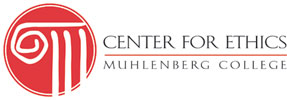
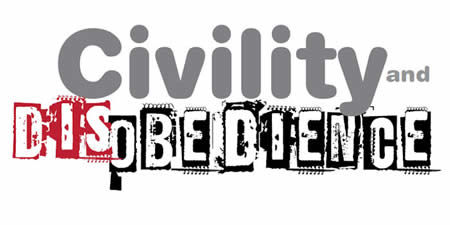
Thoreau wrote, “Law never made men a whit more just; and, by means of their respect for it, even the well-disposed are daily made the agents of injustice.” Societies and organizations depend on compliance and obedience in order to function. Markets suffer if rules are not followed, and societies do not thrive in a state of chaos. But governments and organizations can be morally corrupt; the United States once allowed people to be enslaved, and the tobacco industry deliberately withheld the risks of their potentially lethal product. Under these circumstances, obedience becomes complicity and disobedience becomes the ethical course of action. Thus groups of people and individual whistle-blowers are often called to acts of disobedience and subversion by injustice they observe or experience. Martin Luther’s reformation, the American Civil Rights Movement, environmental activism, military draft-resistance, WikiLeaks, Occupy Wall Street, the African National Congress, Gandhi’s Indian independence movement, the Chiapas Rebellion, and the Arab Spring all represent significant rebellions against dominant authorities. The targets of dissent are not limited to governments, but also include economic, educational, religious, and social institutions that expect adherence to ideologies. In some cases, individuals and organizations engaged in disobedience may themselves engage in morally questionable activities. When is it ethical to rebel against authority? When do moral causes become more important than the rule of law or compliance with norms? What is the role of dissent in healthy democracies? Should protest always be peaceful or is violence sometimes the right thing to do? When is “working within the system” the best thing to do?
Directed by Brian Mello, Associate Professor of Political Science, and , Professor of Philosophy.
FALL 2014 SCHEDULE
Tuesday, September 2, 2014
7:30PM Miller Forum, Moyer Hall
-
Barbara Cruikshank
U. Mass Amherst -
"Silencing Protest: On the Ethics and Politics of Social Theory"
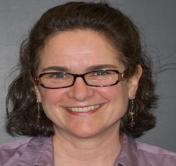 Does history make protest or does protest make history? Do protests rise up through the fissures and structural instabilities of systems (e.g., capitalist, liberal, racial, environmental, sex/gender systems)? Or does protest create those fissures and instabilities? Do all the massive protests underway around the world since 2011, starting in Tunisia, share a time frame, an epoch, or are they making a time frame and thus making history? These are central questions of social theory today on the subject of protest. In my inquiry on how the time of protest is conceptualized in social theory, I find that although social theory on the times of protest is typically written by those whose political sympathies align with the protests they study, they have the perverse effect of silencing protest. In the gap between what happens in protest and what is said to have happened in social theory, I find five reasons to reconsider the ethics of social theory.
Does history make protest or does protest make history? Do protests rise up through the fissures and structural instabilities of systems (e.g., capitalist, liberal, racial, environmental, sex/gender systems)? Or does protest create those fissures and instabilities? Do all the massive protests underway around the world since 2011, starting in Tunisia, share a time frame, an epoch, or are they making a time frame and thus making history? These are central questions of social theory today on the subject of protest. In my inquiry on how the time of protest is conceptualized in social theory, I find that although social theory on the times of protest is typically written by those whose political sympathies align with the protests they study, they have the perverse effect of silencing protest. In the gap between what happens in protest and what is said to have happened in social theory, I find five reasons to reconsider the ethics of social theory.
Cruikshank studies the history of reform, social movements, the politics of sex and sexuality, and relations of power and knowledge. She is the author of the forthcoming book Neopolitics: Activism, Reform, and the Practices of Freedom.
Library Resources for Barbara Cruikshank
Thursday, Sept. 11, 2014 5:00 - 6:30PM
Seegers Great Room

Photo by Michael B. Thomas/Getty Images
"Why all the fuss about Ferguson?"
Friday, September 12, 2014
2:00PM Trumbower 130
Muhlenberg Alumni Activism Panel
Adrian Shanker (’09), Alex Lotorto (’09), and Kelly Howe (’03)
Three Muhlenberg graduates discuss different forms of activism.
Shanker has been a leading advocate for LGBT rights, including workplace nondiscrimination, marriage equality, and employment benefits. Lotorto has been heavily involved in labor and environmental activism. Howe has been involved with social justice activism through theater.
Presented in conjunction with Homecoming Weekend.
Library Resources for Activism Panel
Wednesday, September 17, 2014
7:30PM Miller Forum, Moyer Hall
Scott Lemieux
St. Rose College
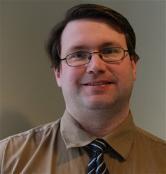 In 2013, the Supreme Court ruled that an important provision of the Voting Rights Act exceeded the powers of Congress. This talk will explain how the Supreme Court came to believe that a statute that passed with nearly unanimous support of Congress and is explicitly authorized by the 15th Amendment was unconstitutional. I will view Shelby County in the context of other attempts by the Supreme Court to limit the ability of Congress to protect civil rights. I will also discuss how mobilization (often in the fact of state violence) was crucial to the original Voting Rights Act, and the potential for mobilization to mitigate the damage of Shelby County.
In 2013, the Supreme Court ruled that an important provision of the Voting Rights Act exceeded the powers of Congress. This talk will explain how the Supreme Court came to believe that a statute that passed with nearly unanimous support of Congress and is explicitly authorized by the 15th Amendment was unconstitutional. I will view Shelby County in the context of other attempts by the Supreme Court to limit the ability of Congress to protect civil rights. I will also discuss how mobilization (often in the fact of state violence) was crucial to the original Voting Rights Act, and the potential for mobilization to mitigate the damage of Shelby County.
Lemieux writes about blogging as activism and voting rights. His research interests include public law, constitutional law, comparative law and institutions, and American politics. He has written or co-written articles for Polity, Studies in Law, Politics and Society, the Journal of Supreme Court History, the Maryland Law Review, and the American Journal of Comparative Law, and also contributes regularly to the American Prospect and the Guardian Online.
Co-sponsored by the Provost's Office and Political Science for Consitution day.
Library Resources for Scott Lemieux
Monday, September 22, 2014
7:30PM Recital Hall, Center for the Arts
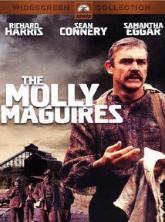 The Molly Maguires
The Molly Maguires
Film screening
A 1970 film directed by Martin Ritt and starring Sean Connery, Richard Harris and Samantha Eggar, The Molly Maguires is based on the historical secret society of 19th century Irish-American coal miners who led a worker’s uprising in Pennsylvania coal country. Some of the film scenes were shot in nearby Jim Thorpe.
Tuesday, September 23, 2014
7:30PM Miller Forum, Moyer Hall
Erik Loomis
U. Rhode Island
"Resistance in the Pennsylvania Coal Country: Past and Present"
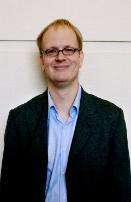 This talk will provide a quick history of resistance among the peoples of the Pennsylvania coal fields from the 19th century to the present, focusing on how corporate domination of the area, its people, and its natural resources has shaped residents' responses to the challenges of living in this resource-rich region. From the first coal strikes in the mid 19th century to the protests over fracking and President Obama's so-called "war on coal" today, the need to make a living and the desire to live in a safe and healthy environment has defined responses to the coal companies, making the lack of economic options a century ago and in the present vital to understanding why working people ally themselves with the coal companies who exploit them.
This talk will provide a quick history of resistance among the peoples of the Pennsylvania coal fields from the 19th century to the present, focusing on how corporate domination of the area, its people, and its natural resources has shaped residents' responses to the challenges of living in this resource-rich region. From the first coal strikes in the mid 19th century to the protests over fracking and President Obama's so-called "war on coal" today, the need to make a living and the desire to live in a safe and healthy environment has defined responses to the coal companies, making the lack of economic options a century ago and in the present vital to understanding why working people ally themselves with the coal companies who exploit them.
Loomis studies U.S. environmental history and labor activism. He is working on the forthcoming book Empire of Timber: Work and Nature in the Pacific Northwest Forests. This visit will include a field trip to tour Pennsylvania coal mine country on Wednesday Sept 24 and will reference the Molly Maguires film screening the previous evening.
Wednesday, September 24, 2014
11 AM to 3:30 PM
 Pennsylvania Mine Tour
Pennsylvania Mine Tour
It's a Center for Ethics field trip! Join Center for Ethics speaker Erik Loomis for a bus trip and tour of the Pioneer Tunnel Coal Mine in Ashland, PA. You can reserve a seat for just $5 with Beth Buechler (Center for the Arts 174).
Saturday, October 11, 2014
8:00PM Baker Theatre, Trexler Pavilion
**A TICKETED PERFORMANCE-- see below**
She Said
Ursula Rucker Live
Ursula Rucker
Writer/Performer
Poet. Performer. Hip-hop recording artist. Shamaness. The outspoken Ursula Rucker brings her civil but disobedient “she-lectricity” back to Muhlenberg for a night of original genre-defying performance. Part hip-hop show, part poetry-slam, part indefinable theatrical ritual, Rucker’s She Said is a new-jazz tour-of-duty onto the battlefields of social injustice, race and gender.
Ursula Rucker is a poet and hip-hop recording artist whose work deals with confronting social injustice, especially as it relates to race and womanhood. She has released 5 critically acclaimed solo albums, and her musical collaborations include work with the Roots, the Silent Poets, King Britt and Josh Wink. She has toured extensively and is featured in the 2008 film The Black Candle, narrated by Maya Angelou. Co-sponsored by the Department of Theatre & Dance.
URSULA RUCKER LIVE is TICKETED EVENT. Everyone must hold a ticket to attend. Tickets (one per student) are FREE for Muhlenberg students, faculty and staff. Tickets for the general public are $5 (general admission).
URSULA RUCKER EVENTS FLYER (pdf)
Library Resources for Ursula Rucker
Monday, October 20, 2014
7:30PM Miller Forum, Moyer Hall
David Pellow
U. Minnesota
"Radical Politics, State Repression, and the Problem of ‘Eco-Terrorism’"
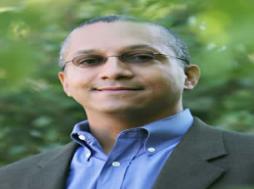 To what extent are radical environmental and animal liberation movements also struggles over social inequality? In other words, to what degree are these movements that are typically seen as primarily focused on defending nonhuman animals and ecosystems also confronting oppression within human communities? What are the implications of the ‘eco-terrorist’ label that states, corporations, and media impose on these groups? I consider these questions in relation to broader historical patterns of social movement struggles against oppression and the phenomenon of state repression directed at dissident groups. I conclude with a discussion of the productive links between radical earth and animal liberation movements and environmental justice movements.
To what extent are radical environmental and animal liberation movements also struggles over social inequality? In other words, to what degree are these movements that are typically seen as primarily focused on defending nonhuman animals and ecosystems also confronting oppression within human communities? What are the implications of the ‘eco-terrorist’ label that states, corporations, and media impose on these groups? I consider these questions in relation to broader historical patterns of social movement struggles against oppression and the phenomenon of state repression directed at dissident groups. I conclude with a discussion of the productive links between radical earth and animal liberation movements and environmental justice movements.
David Pellow's interests include environmental justice studies, racial and ethnic inequality, transnational social movements, and labor studies. He is the author of the forthcoming book Total Liberation: The Power and Promise and Animal Rights and the Radical Earth Movement.
Library Resources for David Pellow
Tuesday, October 21, 2014
8:00 PM Red Door Cafe
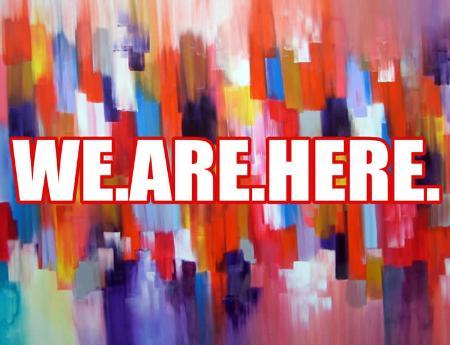
We.Are.Here.
An evening of original performance by Muhlenberg students, curated by Ursula Rucker.
Guest artist Ursula Rucker premieres an evening of new spoken-word performances created by the First Year students in Muhlenberg's Emerging Leaders program. Set to live music and themed on notions of civility, disobedience and identity. Co-sponsored by Theatre and Dance. FLYER (pdf).
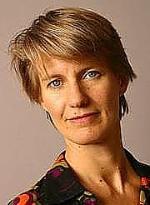 Monday, October 27, 2014
Monday, October 27, 2014
7:30 PM Miller Forum Moyer Hall
Carroll Bogert
Deputy Executive Director of
Human Rights Watch
What do U.S. policy and U.S. actions on human rights look like in the 21st century? Does the U.S. possess the means to meaningfully protect human rights in such places as China, Russia, and the Middle East? Does the U.S. have the moral standing to intervene around the world in support of human rights? What is the U.S. role right now? What could it be?
Bogert studies human rights in the U.S. and abroad and media coverage of protest and human rights issues. Bogert is the 2014 Woodrow Wilson Visiting Fellow.
Library Resources for Carroll Bogert
A DVD of Carroll Bogert's talk is on reserve at Trexler Library under "Center for Ethics."
Wednesday, Oct 29, 2014
8:00 PM Seegers 113
E-Team
A film Screening with Woodrow Wilson Fellow Caroll Boegert of Human Rights Watch
This documentary film, released by Netflix, was made by Ross Kauffman and Katy Chevigny and won the 2014 Sundance Film Festival Award for Cinematography in a U.S. Documentary. Following the film, Bogert will lead a Q and A session.
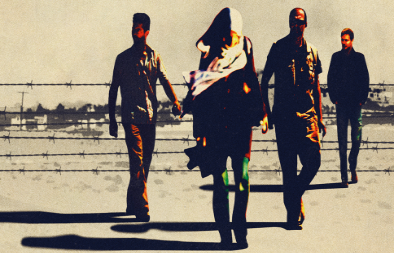
Anna, Ole, Fred and Peter are four members of the Emergencies Team - or E-Team - the most intrepid division of a respected, international human rights group (Human Rights Watch). Trained to deal with unfolding crises, the E-Team flies to hotspots all over the world as soon as allegations of human rights abuse surface. The documentary follows the E-Team members to Syria and Libya, where they uncover evidence of human rights violations. Cinematographer James Foley, who was murdered by ISIS in August 2014 contributed to the film.
Thursday, Nov 13, 2014
7:00 PM Miller Forum Moyer Hall
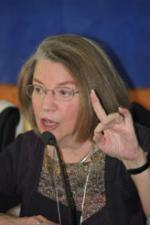 Nancy Fraser
Nancy Fraser
The New School
"Can Society Be Commodities All the Way Down?"
Fraser is a critical theorist who studies justice and feminism. She is the author of Fortunes of Feminism: From State-Managed Capitalism to Neoliberal Crisis. Co-sponsored by Women’s Studies.
Library Resources for Nancy Fraser
SPRING 2015 SCHEDULE
Monday, January 19, 2015 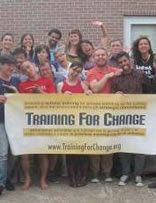
10AM-3PM Seegers 111-112
Training for Change
An activism workshop for students, staff and members of the community. Training for Change will provide activist training for groups standing up for social, economic, and environmental justice through strategic nonviolence.
Wednesday, March 11, 2015
7:30 PM Miller Forum, Moyer Hall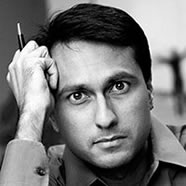
Eboo Patel
Civil Discourse: Promoting Social Change through Interfaith Action
Eboo Patel is a member of President Barack Obama's inaugural Advisory Council on Faith-Based Neighborhood Partnerships and president of the Interfaith Youth Core. Religious and non-religious identities can serve as a bridge of cooperation rather than a barrier of division. In an increasingly pluralistic society, what knowledge base and skill do we need to create these bridges? Patel's answer is interfaith leadership: the ability to voice values, engage diversity, and act on behalf of the common good. Co-sponsored by Chaplain's Office.
Tuesday March 31, 2015 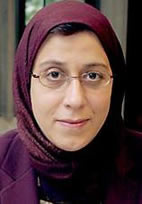
7:30 PM Miller Forum, Moyer Hall
Amaney Jamal
Princeton University
Amaney Jamal is Professor of Politics at Princeton University and director of the Mamdouha S. Bobst Center for Peace and Justice. Her books include Barriers to Democracy, which explores the role of civic associations in promoting democratic effects in the Arab world. Jamal's talk will examine various aspects of civility and disobedience within Palestinian politics.
Wednesday, April 15, 2015 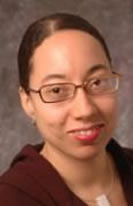
7:30 PM Seegers Event Space
Donna Murch
Rutgers University
Donna Murch is Associate Professor of History at Rutgers University. Her interests include the urban history of California and New York; Civil Rights, Black Power and postwar social movements; history of policing and prisons; and the political economy of drugs.
